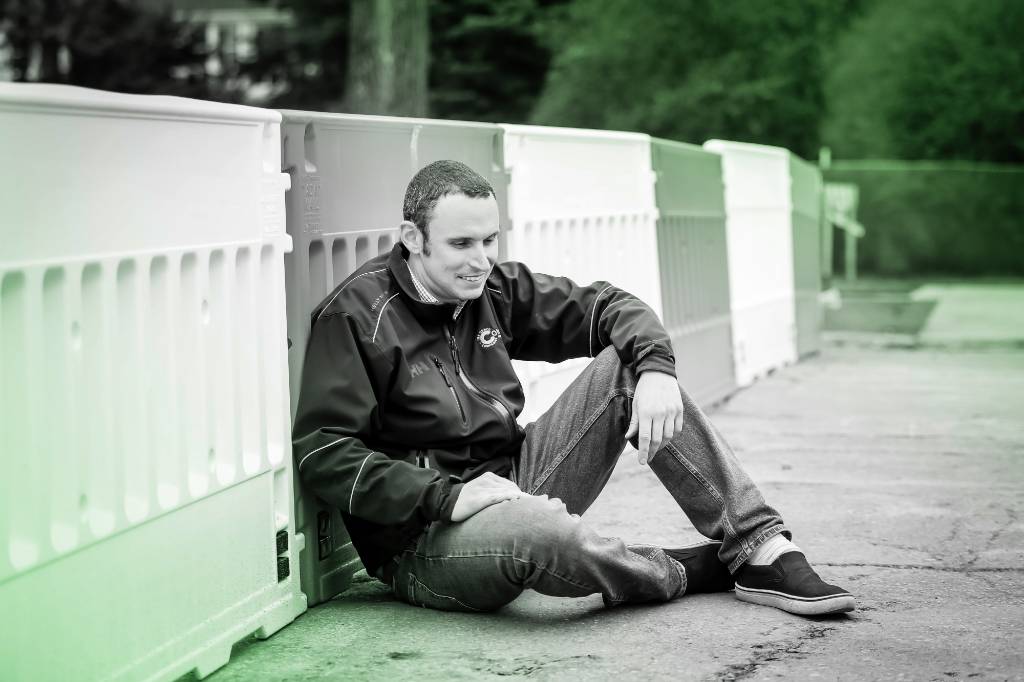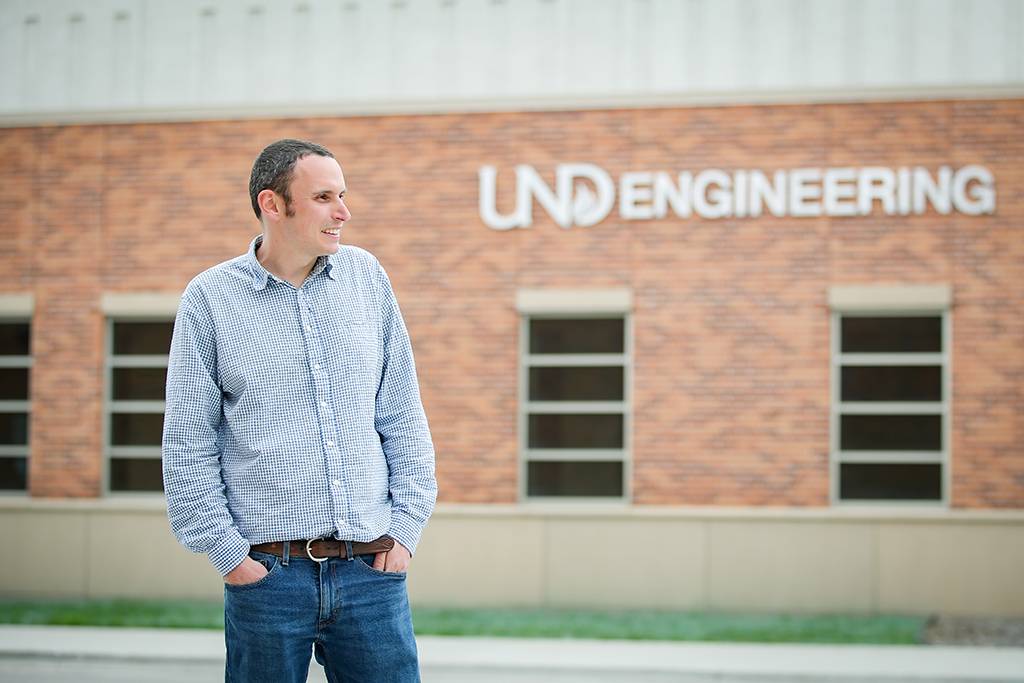Building What Lasts
The pyramids in Egypt. Stonehenge in Britain. Roman bridges. The Great Wall of China.
These everlasting wonders of architectural and engineering mastery fascinate Brendan Blades. It is a fitting allure for him, one that marries his past endeavors and current pursuits, one that hints at his aspirations.
Blades holds a bachelor’s degree in history, which was supposed to lead to a career in education. Today, however, it kindles his passion for civil engineering, which he is studying online at the University of North Dakota.
“I enjoy reading about how different cultures practiced engineering in the past, practiced architecture,” Blades said. “Civil engineering is a chance to meld that passion with something more practical.”

Working in the construction industry in Seattle, Brendan Blades is earning an online engineering degree from UND to further his career.
Blades’ undergraduate education took him from his native Seattle to Arizona and later to northern Mongolia with the Peace Corps.
In a village with no running water and intermittent electricity, where temperatures dropped to 40 below zero Fahrenheit in winter, he taught English for two years. It was a time of little physical comfort but tremendous intellectual and emotional reward. It was a time of simple living and communal bonding.
“There is a saying that Peace Corps volunteers have,” Blades said. “They say that you get a lot more from the culture you serve than you can ever give them.”
Teaching, though, proved to be a poor fit for him. So, upon returning to the West Coast, Blades leaped into the restaurant business for five years.
In 2013, he began to feel restless, trapped in an industry for which he found little enthusiasm. He shifted gears, obtained a computer-aided design degree from a local technical college and started a job at a construction company that devises solutions for concrete walls.
“Once I got there, I realized I really do want to become an engineer,” Blades said.
UND made such an effort to put infrastructure in place. There is a resource for everything.
The creative challenges of executing others’ designs perked him up, but he craved the thrill of chasing his own building ideas.
“I can walk around Seattle and see a building I worked on, see the details I worked on,” he said. “How much cooler would it be if it was something that I actually decided rather than something I took off from someone else’s work?”
But there were no local universities where Blades could study and work at the same time. UND, with its accredited online engineering program, which recently marked its 30th year, offered what Blades sought — quality, flexibility and engagement.

As part of their curriculum, online engineering students visit the UND campus for one week a year for lab courses.
Pursuing civil engineering online, however, is no small feat. After he leaves his cubical at 3 in the afternoon, Blades spends hours doing homework. Amid work obligations and family duties, he grinds through classes such as calculus, differentiated equations and fluid mechanics. These are subjects that once intimidated him. But his efforts are paying off, backed with the support he needs professionally and academically.
“You are not going to find [these classes] online anywhere else, you are not going to find them accredited anywhere else,” Blades said. “UND made such an effort to put infrastructure in place. There is a resource for everything. There is someone you can ask. I find people who are so helpful.”
Balancing a couple of classes into his routine each semester, Blades plans to graduate in about two or three years.
“Finishing this degree should be a life-transforming event,” he said.
It also would be a step toward what he hopes to be his own engineering wonder — a skyscraper in downtown Seattle.
